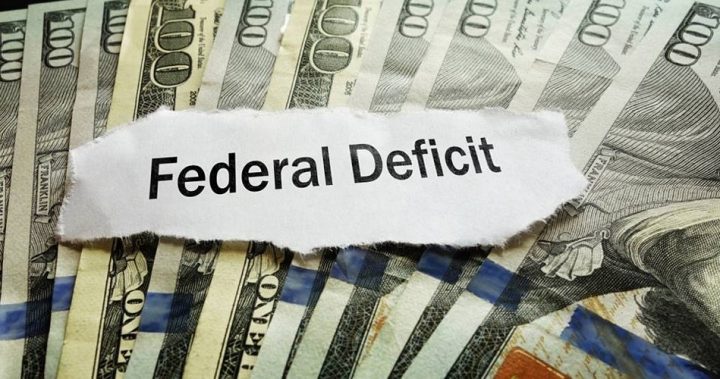
The U.S. Treasury announced on Friday that the federal government has spent $1.8 trillion since October 1, the start of fiscal year 2019, while tax receipts were only $1.3 trillion. This leaves a deficit of a little over $500 billion.
It would have been only $489 billion, except that in the month of February the IRS began sending out refund checks, and personal and business tax returns aren’t due until April.
Only $489 billion? On an annual basis, if nothing changes, the federal government will ring up deficits of $1.2 trillion this fiscal year, pushing the national debt to over $23 trillion by October.
As The New American reported last month, the Congressional Budget Office (CBO) estimated that in less than 10 years the national debt will be close to $36 trillion if nothing changes.
A lot of things can change in 10 years: wars, depressions, and the Green New Deal for starters. So readers should brace themselves for a national debt that exceeds human imagining.
But wait! Hasn’t the federal government been running massive deficits for years, with few lasting consequences? The reasoning, from common-sense (Austrian School) economic thinking, goes like this: Deficits are financed either by borrowing, or by printing new money (digital new money since printing new currency is so passé). When the newly borrowed or created money is spent by the government, this pushes prices upwards, reflecting the currency’s loss of purchasing power. Great concerns are then voiced about runaway inflation followed by recession or depression.
But history seems to have gotten in the way. The national debt first hit a trillion dollars in President Reagan’s first term and now clocks in at $22 trillion. Where is the runaway inflation? Where are the rising interest rates as investors and lenders demand more to protect themselves against loss of purchasing power and possible default? Today the government is able to borrow all it needs at three percent interest.
And what about Japan? The Japanese government has been attempting to stimulate that country’s moribund economy for decades. That nation’s national debt is now two-and-one-half times the size of its annual economic output. Interest rates there? Declining, from just over one percent in late 2018 to 0.2 percent in February.
Where is the depression in Japan? Its Gross Domestic Product (GDP) is $5 trillion, making it the third-largest economy in the world, behind China and the United States.
There is a new math to explain all of this, and it has a name: Modern Monetary Theory, or MMT. The New American has taken pains to cover this here and here, but simply put, the new theory says that deficits don’t matter as long as the government owns the printing press.
A professor of public policy and economics at an obscure university has been pushing MMT for years, advising Senator Bernie Sanders (I-Vt.) and more recently Representative Alexandria Ocasio-Cortez (D-N.Y.) that the government can spend without limit. The only thing standing in the way, says Professor Stephanie Kelton of Stony Brook University, is the will to spend it: “What we don’t (yet) have is the final, vital ingredient: a critical mass of politicians prepared to unleash the enormous power of the public purse to save the planet.”
In order to do that, she says, “We must change the way we approach the federal budget. We must give up our obsession with trying to ‘pay for’ everything with new revenue or spending cuts.”
MMT is getting some traction, including from President Trump’s chief economic advisor, Larry Kudlow: “I don’t think good growth policies have to obsess [note Kelton’s word], necessarily, about the budget deficit.”
Ben Hunt runs a hedge fund and still clings to the now old-fashioned idea that deficits do matter, and that MMT is merely a new twist on the old alchemy that promised to turn lead into gold:
At its core, Modern Monetary Theory is an argument that would be wonderfully familiar to every sovereign since the invention of debt. It is essentially the argument that significant sovereign debt is a good thing, not a bad thing, and that budget balancing efforts on a national scale do much more harm than good.
Why? Because there’s so much to do and so little time for the right-minded sovereign [to do it]. Because it is fundamentally unjust for the demands of private lenders to thwart the necessary ends of the sovereign, and it is politically difficult to finance those ends through tax levies on a fickle citizenry.
MMT is the sovereign-friendly justification for deficit spending without end.
It is time for those pushing MMT to re-read The Emperor’s New Clothes by Han Christian Andersen.
Image: zimmytws via iStock / Getty Images Plus
An Ivy League graduate and former investment advisor, Bob is a regular contributor to The New American, writing primarily on economics and politics. He can be reached at [email protected].
Related articles:



